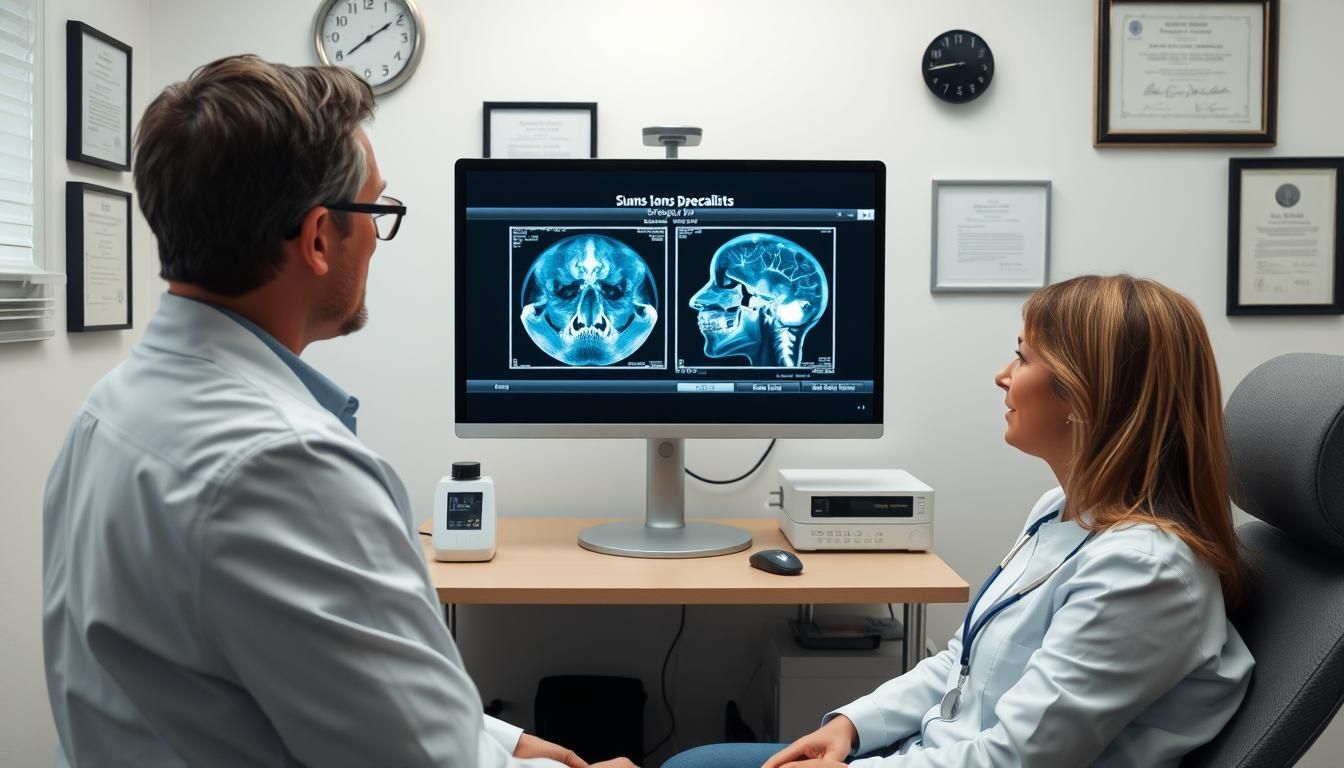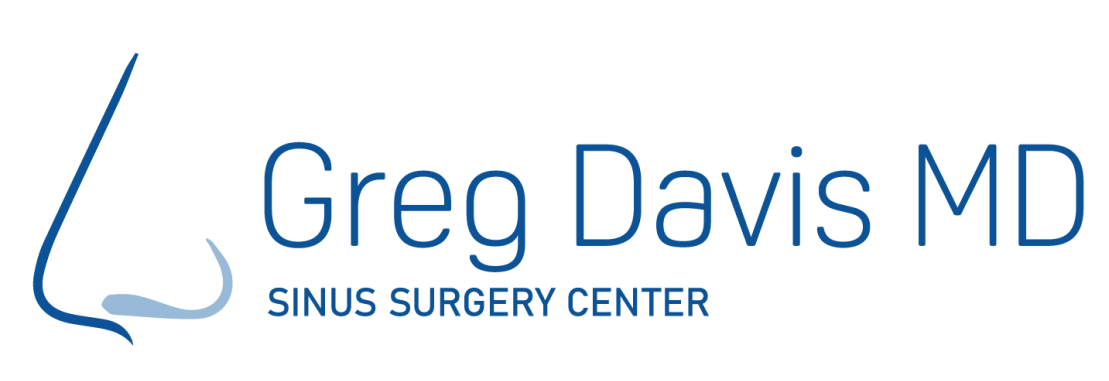When Should You See a Rhinologist in Tacoma?

Nearly 37 million Americans deal with chronic sinusitis every year. This is one of the most common health issues in the U.S. People face ongoing nasal congestion, facial pain, and breathing troubles that affect their daily lives.
The Pacific Northwest's climate is tough on nasal and sinus health. High humidity levels, lots of rain, and seasonal allergens lead to more sinus problems. Many think their symptoms are just allergies or colds.
But, some symptoms need a rhinologist tacoma wa can rely on. While your family doctor can handle basic nasal issues, complex or ongoing problems need a specialist's touch.
A sinus specialist tacoma has more training than a general ENT doctor. We know early treatment stops bigger problems and boosts your quality of life. Knowing when to see a specialist is key to better treatment.
Key Takeaways
- Chronic sinusitis affects 37 million Americans annually, requiring specialized care
- Pacific Northwest climate increases nasal and sinus problems for local residents
- Persistent symptoms lasting over 12 weeks need rhinologist evaluation
- Early intervention by specialists prevents serious complications
- Rhinologists have advanced training beyond general ENT practice
- Environmental factors in Tacoma make specialized sinus care important
Understanding What a Rhinologist Does
Patients with ongoing nasal and sinus issues find relief with a rhinologist. These experts are at the top of nasal and sinus care. They deal with breathing, smell, and nasal function problems.
Rhinologists are different from general ENT doctors. While ENT doctors handle many ear, nose, and throat issues, rhinologists focus only on nasal and sinus problems. Their narrow focus helps them master complex cases.
Specialized Training Beyond General ENT
To become a rhinologist, one needs a lot of medical training. First, they finish medical school and a five-year ENT residency. Then, they do an extra year of fellowship in rhinology and skull base surgery.
In fellowship, they tackle the toughest nasal and sinus cases. They learn new surgical methods and keep up with nasal medicine research. Many ENT specialists in Pierce County choose this path to help patients with hard-to-treat conditions.
This extra year of training greatly improves patient care. Fellowship-trained rhinologists use the latest treatments and surgical methods. They also contribute to nasal medicine research.
Focus on Nasal and Sinus Disorders
Rhinologists deal with specific issues like chronic sinusitis, nasal polyps, and structural problems. They also handle smell disorders and nasal tumors. Their knowledge helps them treat complex cases.
They understand how different parts of the nose work together. This knowledge helps them create better treatment plans. They know how inflammation in one area can affect the whole nose.
They also treat severe allergies that impact the nose. Working with allergists, they offer complete care. Their focused approach often solves long-standing problems.
Advanced Diagnostic Capabilities
Rhinologists have tools that general doctors don't. They use nasal endoscopy to see inside the nose. This lets them find problems that can't be seen from the outside.
They also interpret CT scans to find sinus issues. Advanced allergy tests help them find what triggers nasal problems. These advanced diagnostic capabilities help them plan treatments that fit each patient's needs.
Warning Signs That Indicate You Need Specialist Care
Some signs show you need a rhinology specialist for your nasal and sinus problems. If symptoms last long after usual treatments or really bother your daily life, get expert help. Early help from a skilled rhinologist can stop problems and improve your life more than general treatments.
Persistent Nasal Congestion Lasting Over 12 Weeks
Long-lasting nasal congestion over 12 weeks might mean chronic rhinosinusitis. This needs more than what your doctor can do. Common treatments like decongestants and antihistamines usually don't work on the real cause.
Many people have congestion due to structural issues or ongoing inflammation. These cases need advanced nasal obstruction treatments that fix the problem, not just ease symptoms. A rhinologist can find out if your congestion is from a physical issue, chronic sinusitis, or something else.
Recurring Sinus Infections Despite Treatment
Having many sinus infections in a year, even after antibiotics, means there's a bigger issue. Some bacteria don't respond to antibiotics and structural problems can also cause these infections. Antibiotics might help for a bit but won't stop them from coming back.
Patients with four or more sinus infections a year often need a detailed check-up. Rhinologists can figure out if biofilm, immune problems, or physical issues are causing the infections.
Complete or Partial Loss of Smell and Taste
Not being able to smell or taste fully can really affect your life and safety. These problems often mean you have nasal polyps, chronic inflammation, or nerve damage. Loss of taste often happens with smell problems because they're connected.
Smell and taste loss can make food less enjoyable, make it hard to detect dangers, and affect your mood. Effective nasal polyp treatment and other special treatments can help bring back these senses. Seeing a doctor early can help you get better faster.
Severe Facial Pain and Pressure
Severe pain in your face, like around your eyes or forehead, could mean serious sinus disease. This pain can get worse when you bend forward or with weather changes. Intense pressure might mean your sinuses are blocked or inflamed.
Facial pain can really hurt your work and sleep. If pain lasts after trying over-the-counter meds, you need a specialist. Rhinologists can tell if the pain is from sinuses or something else and treat it right.
These signs often happen together, and rhinologists know it right away. Don't wait for symptoms to get worse before getting help in Tacoma.
Chronic Sinusitis Doctor Evaluation Criteria
A chronic sinusitis doctor follows set rules to check patient symptoms and treatment history. They use a detailed method to figure out when patients need special rhinology care.
The process looks at many factors to tell if it's an acute or chronic case. We focus on key criteria for making treatment choices and who to refer to.
Symptoms Duration and Severity Assessment
How long symptoms last is key in diagnosing chronic sinusitis. Symptoms must last twelve weeks or longer to be chronic.
A sinus specialist tacoma uses scoring systems to measure symptom severity. These tools check nasal congestion, facial pressure, drainage, and smell on a scale.
The Visual Analog Scale lets patients rate symptoms from zero to ten. This helps track symptom changes and how well treatments work.
Impact on Sleep and Quality of Life
Bad sleep often means severe sinus disease that needs a specialist. We look at how nasal blockage affects sleep, snoring, and daytime tiredness.
Quality of life is checked with the SNOT-22 survey. This tool sees how sinus symptoms affect work, social life, and mood.
A chronic sinusitis doctor looks at how symptoms limit daily activities. Big lifestyle changes mean more serious treatments are needed.
Failed Response to Conservative Treatments
Showing treatment failure is key for specialist referrals. Patients must not get better with many conservative treatments before seeing a specialist.
Standard treatments include antibiotics, nasal sprays, and saline rinses. A sinus specialist tacoma checks how long and how much of these treatments were tried.
Not responding to treatments often means structural issues or hard-to-treat infections. These cases usually need endoscopy and surgery.
Nasal Structural Problems Requiring Expert Assessment
Physical obstructions in the nasal cavity often lead to chronic symptoms. These issues are hard for general doctors to fix. A rhinologist can diagnose the real problem with advanced tools. Structural nasal problems are some of the most treatable causes of breathing difficulties when found and treated right.
Many patients deal with nasal symptoms for years before getting a correct diagnosis. Rhinologists use high-tech imaging and endoscopy to find the exact cause of your symptoms.
Deviated Septum and Breathing Difficulties
A deviated nasal septum happens when the thin wall between your nostrils shifts. This is common, affecting up to 80% of people. But not everyone with a deviated septum has symptoms.
Big septal deviations can lead to problems like one-sided nasal congestion, nosebleeds, and loud snoring. These issues often disrupt sleep because of poor airflow.
Septoplasty tacoma specialists can tell if your septal deviation needs surgery. This surgery is done on an outpatient basis. It straightens the septum, improving breathing and reducing symptoms. Recovery usually takes one to two weeks, with noticeable improvements in airflow.
Nasal Polyp Growth and Obstruction
Nasal polyps are soft, painless growths in the nasal passages or sinuses. They can grow big enough to block airflow. Many people feel like they have a permanent cold.
Polyps often grow due to long-term inflammation from allergies or infections. As they grow, you might lose your sense of smell and taste. Facial pressure or headaches can also occur from the blockage.
Nasal polyp treatment needs special care to tackle the polyps and the inflammation. Doctors might prescribe medicines for smaller polyps. Larger ones usually need surgery to remove them.
Turbinate Hypertrophy Issues
Turbinates are structures inside your nose that warm and humidify air. When they get too big, they block airflow. This is called turbinate hypertrophy.
Chronic allergies, infections, or irritants can make turbinates swell. You might have constant nasal congestion that doesn't go away with decongestants. The blockage often gets worse when lying down or during allergy seasons.
Rhinologists can tell if the swelling is temporary or permanent. Treatment can range from nasal sprays to surgery. Turbinate reduction surgery can offer lasting relief when other treatments don't work.
Finding a Qualified Rhinologist Tacoma WA Offers
Looking for a rhinologist tacoma wa patients trust means checking several things. You need to look at their credentials, training, and other practical details. This ensures you get the right care for your condition.
Start by knowing what makes a specialist different from a general doctor. Look for specific qualifications that show they know a lot about rhinology. This helps find doctors who can treat complex nasal and sinus problems well.
Board Certification and Subspecialty Training
Being board certified in otolaryngology is key for a rhinologist. All good specialists have this basic certification from the American Board of Otolaryngology. But, fellowship training in rhinology is even more important for real expertise.
Fellowship programs last a year after residency. They focus on nasal, sinus, and skull base issues. Check these credentials on the American Board of Medical Specialties website or your state medical board.
"The difference between general ENT training and rhinology fellowship training is like comparing a family doctor to a cardiologist - both are valuable, but one offers specialized expertise for complex conditions."
Look for doctors who keep learning. Being part of groups like the American Rhinologic Society shows they're committed to staying up-to-date. These doctors often share research and learn about new treatments.
Hospital Affiliations in Pierce County
Hospital affiliations show a doctor's reputation in the medical world. Pierce county ent specialists usually work at big hospitals in the area. Places like MultiCare Tacoma General Hospital and St. Joseph Medical Center have the latest technology.
These affiliations are important because they offer access to the best equipment and teamwork. Hospitals with strong ENT departments attract top doctors. They also have strict rules to ensure quality care.
Think about the location of these hospitals when choosing a doctor. You might need to go there quickly if something goes wrong. Being close to home or work is helpful when you're recovering.
Insurance Coverage and Accessibility
Check your insurance before your first visit. Most plans cover rhinology visits when they're needed. But, coverage details vary a lot between plans and procedures.
Call the doctor's office to see if they take your insurance. Ask how long it takes to get an appointment. Some doctors are very busy, which might affect urgent needs.
Think about other things like how easy it is to get to the office. Look at parking, public transport, and if they offer online visits. This makes your experience better.
Get ready with questions about treatment and what to expect. This helps you see if the doctor's style and plans fit what you need.
Advanced Treatment Options and Surgical Procedures
Advanced surgical techniques have changed how we treat nasal and sinus problems in Washington state. Modern rhinologists offer many treatment options for both simple and complex issues. These methods aim to restore normal function, reduce discomfort, and shorten recovery time.
We use evidence-based methods to find the best treatment for each patient. The goal is always to improve breathing, eliminate chronic symptoms, and enhance quality of life. Our surgeries are tailored to each patient's unique anatomy and condition severity.
Endoscopic Sinus Surgery WA Techniques
Endoscopic sinus surgery wa is the top choice for chronic sinusitis and structural issues. This method uses a thin, flexible endoscope to see inside the nasal passages. It allows for precise removal of diseased tissue while keeping healthy areas intact.
Functional Endoscopic Sinus Surgery (FESS) opens up blocked sinus passages and helps with drainage. It's done through the nostrils without any external cuts. Most patients see big improvements in symptoms within weeks of surgery.
Image-guided surgery adds precision in complex cases. This technology guides the surgeon in real-time. It lowers risks and boosts success rates for patients with severe anatomical issues.
"Endoscopic techniques have transformed sinus surgery from a major procedure to an outpatient treatment with excellent results and minimal downtime."
Balloon Sinuplasty Minimally Invasive Options
Balloon sinuplasty is a less invasive option for some patients. It uses a small balloon catheter to open blocked sinus passages. This method keeps the natural sinus anatomy and mucosa intact.
The procedure works by gently inflating a balloon in the blocked sinus opening. This widens the passage and helps with drainage. Recovery time is usually shorter than traditional sinus surgery.
We suggest balloon sinuplasty for patients with specific blockages. The best candidates have isolated sinus openings that can be opened by dilation. Not all patients are suitable for this method based on their condition.
Nasal Polyp Treatment Approaches
Treating nasal polyps requires a mix of medical and surgical steps. We start with medical treatments like topical corticosteroids and oral medications. These can shrink polyps and control inflammation.
Biologic therapies are a breakthrough for severe nasal polyp cases. These medications target specific inflammatory pathways. Patients with aspirin-exacerbated respiratory disease often see big improvements from these treatments.
Surgical removal is needed when medical treatments fail. We use endoscopic techniques to remove polyps and address underlying causes. The surgery includes treating sinusitis and correcting structural problems.
Post-surgical care is key to success. We give detailed instructions on nasal irrigation and medication use. Regular follow-ups help monitor healing and prevent complications.
The right surgical technique depends on the patient's anatomy, symptom severity, and past treatments. Our rhinologists carefully evaluate each case to recommend the best approach. This personalized strategy aims for the best outcomes and long-term relief from symptoms.
Tacoma Allergy Rhinologist Services for Complex Cases
In Tacoma, environmental factors lead to complex allergies. These need special knowledge of local triggers and advanced treatments. A tacoma allergy rhinologist can handle both nasal problems and allergies well.
These experts know how allergens can make nasal issues worse. They also see how allergies can cause nasal polyps or blockages.
Pacific Northwest Environmental Triggers
The Pacific Northwest has unique allergy challenges. Douglas fir and western red cedar pollen can overwhelm people during certain times.
Our area's humidity is perfect for mold, which grows more in fall and winter. Spores from Aspergillus and Penicillium species can cause symptoms all year, often mistaken for sinusitis.
Summer brings grass pollen, while spring has tree pollen. A sinus specialist tacoma can pinpoint what allergens affect each patient.
Comprehensive Allergy Testing
Today's allergy tests are more detailed than scratch tests. Skin prick tests check reactions to over 50 common allergens in our area.
Intradermal testing is more sensitive, catching allergic reactions that other tests might miss. It's great for finding mold allergies that cause sinus problems.
Specific IgE blood tests confirm findings and can spot food allergies that cause nasal issues. These tests help a tacoma allergy rhinologist create effective treatment plans.
Immunotherapy and Desensitization Programs
Allergy shots are a top treatment for environmental allergies, offering lasting relief. The process involves a buildup phase and maintenance shots over three to five years.
Sublingual immunotherapy is an option for those who can't take shots or prefer home treatment. These drops under the tongue help patients get used to specific allergens.
Each patient gets a custom immunotherapy plan. A sinus specialist tacoma will adjust the treatment as needed to ensure the best results with few side effects.
Nasal Obstruction Treatment Beyond Basic Care
Dealing with nasal obstruction treatment means using precise tests and treatments. When simple care doesn't work, we use advanced tests and treatments. Our team uses the latest technology and knowledge to help patients get better.
Getting the right diagnosis is key. Every patient is different, so we create special plans for each one. The nasal area's complexity means we need special tools to find out why breathing is hard.
Diagnostic Imaging and Endoscopy
Today's rhinology uses high-tech images to see inside the nose. We use CT scans to look at the sinuses and find problems. These scans show things like septal deviations and polyps that block air.
Nasal endoscopy lets us see inside the nose without surgery. It helps us check for inflammation and other issues. Acoustic rhinometry measures how open the nasal passages are, giving us exact numbers on blockages.
We also use tools like rhinomanometry for airflow and allergy tests. These help us figure out the best treatment and surgery plans.
Medical Management vs Surgical Solutions
Choosing treatment depends on how bad the blockage is and what's causing it. Doctors might use sprays or drops to reduce swelling and antihistamines for allergies. Saline rinses help keep the nose clean and clear.
If these methods don't work, surgery might be needed. Septoplasty Tacoma specialists fix deviated septums. They also reduce turbinate bones to help with breathing.
We offer other surgeries like functional rhinoplasty for nasal valve problems and balloon sinuplasty for blocked sinuses. Each surgery is chosen based on our detailed checks.
Pediatric Rhinology Considerations
Children need special care because their noses are still growing. We check for big adenoids and other issues that can block breathing. Problems like choanal atresia need quick action to help breathing develop right.
For kids, we try to avoid surgery first. We watch how they grow and adjust treatments as needed. Surgery for kids must consider how their face will grow and look in the future.
Our treatment for kids includes teaching parents about keeping the nose clean and avoiding allergens. We work with parents to make sure kids get the best care and follow treatment plans.
Conclusion
Persistent nasal and sinus symptoms need a doctor's special care. If simple treatments don't work after 12 weeks, it's time to see an expert. Your health and happiness depend on it.
The Pacific Northwest's weather can make breathing harder. Our environment can make existing problems worse. We know how these factors affect our patients every day.
Seeing a rhinologist early can stop big problems before they start. They find the real cause of your symptoms, not just treat them. Procedures like endoscopic sinus surgery can fix issues that medicine can't.
Good nasal health is key to feeling good. It affects how well you sleep, your energy, and your mood. Breathing problems can hurt your job and relationships too.
If symptoms keep coming back, it's time for a check-up. We'll find out what's wrong and make a plan just for you. Our care includes everything from medicine to surgery.
Don't let nasal issues run your life. Getting help can make breathing easy again and improve your life. Take the first step today for a healthier tomorrow.
FAQ
When should I consider seeing a rhinologist in Tacoma instead of my regular doctor?
See a rhinologist for nasal congestion lasting over 12 weeks or recurring sinus infections. Also, if you have severe facial pain, loss of smell and taste, or if symptoms affect your sleep and daily life. They offer advanced care and treatments not available from general doctors.
What makes a rhinologist different from a regular ENT doctor?
Rhinologists get extra training after ENT residency. This lets them use advanced tools like nasal endoscopy and CT scans. They can handle complex issues like chronic sinusitis and nasal polyps that regular doctors might miss.
How do I know if my sinus problems require chronic sinusitis doctor evaluation?
We check if symptoms last over 12 weeks and how they affect your life. If standard treatments don't work, you might need a specialist. This is often the case for chronic sinusitis.
What nasal structural problems require expert assessment from a sinus specialist in Tacoma?
We look at issues like deviated septums, nasal polyps, and turbinate problems. These need special care to figure out the right treatment.
What should I look for when finding a qualified rhinologist in Tacoma WA?
Check for board certification in otolaryngology and rhinology training. Look for hospital affiliations with major medical centers in Pierce County. This shows they have access to advanced care.
What advanced treatment options are available through endoscopic sinus surgery in WA?
We offer FESS and image-guided surgery to fix sinus drainage. Balloon sinuplasty is also an option for some. We treat nasal polyps with medicine and biologic therapies for severe cases.
How does a Tacoma allergy rhinologist address Pacific Northwest environmental triggers?
We test for allergies to Douglas fir, cedar, and mold. We offer shots and sublingual therapy for long-term relief.
What diagnostic tools do you use for nasal obstruction treatment beyond basic care?
We use CT scans, acoustic rhinometry, and nasal endoscopy. This helps us find the cause of nasal blockage and plan the best treatment.
Do you provide pediatric rhinology services in Pierce County?
Yes, we have special care for kids. We treat conditions like adenoid hypertrophy and chronic sinusitis. Our plans are made for children's needs.
How quickly can I expect improvement after seeing a rhinologist for chronic symptoms?
Improvement times vary by condition and treatment. Medical treatments might work in weeks. Surgery can take 4-6 weeks to show results. We set realistic expectations based on your case.



